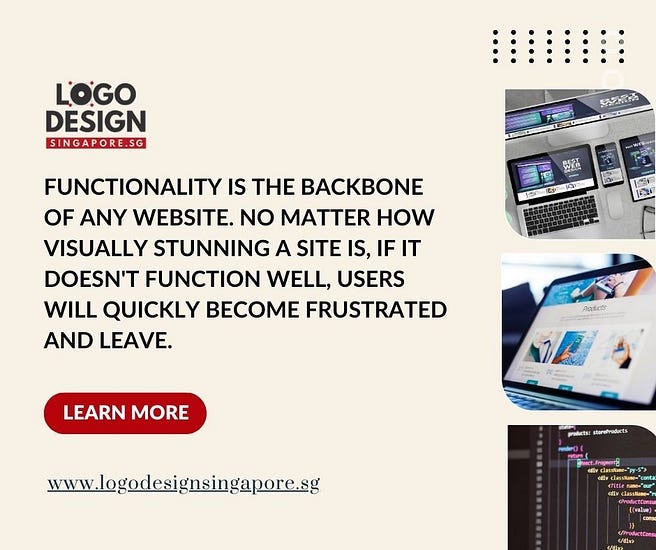
Striking the perfect balance between creativity and functionality is a challenge that every web designer faces. Whether you are an in-house professional or a freelance web designer Singapore, the ability to blend aesthetic appeal with practical usability is crucial for creating websites that not only attract but also retain users. Here’s how to achieve this balance
effectively.
Understanding the Importance of Functionality
Functionality is the backbone of any website. No matter how visually stunning a site is, if it doesn’t function well, users will quickly become frustrated and leave. A functional website is intuitive, easy to navigate, and performs seamlessly across all devices. As a web designer, your primary goal should be to ensure that users can find the information they need and complete their tasks with minimal effort. This includes optimizing load times, ensuring mobile responsiveness, and creating a logical navigation structure.
Harnessing Creativity to Enhance User Experience
Creativity in web design is what sets a website apart from its competitors. It involves using innovative design elements, unique layouts, and engaging visuals to create an aesthetically pleasing experience. For a freelance web designer Singapore, creativity is also a way to showcase personal style and attract potential clients. However, creativity should never come at the expense of usability. The key is to use creative elements to enhance, rather than hinder, the user experience.
Integrating Creativity and Functionality
User-Centered Design: Start with a user-centered design approach. Understand your audience and their needs. Conduct user research and create personas to guide your design decisions. This ensures that your creative ideas are aligned with user expectations and functionality requirements.
Consistent Layouts: Use consistent layouts that guide users effortlessly through the site. Creative elements like innovative typography or custom graphics can add flair, but they should not disrupt the overall flow. Consistency helps users feel comfortable and confident as they navigate.
Visual Hierarchy: Establish a clear visual hierarchy to direct users’ attention to key areas. Use design principles like size, color, and contrast strategically to highlight important information and calls to action. This approach allows for creativity while maintaining usability.
Interactive Elements: Incorporate interactive elements that engage users without overwhelming them. Subtle animations, hover effects, and interactive infographics can enhance user experience when used sparingly and purposefully.
Testing and Feedback: Continuously test your designs with real users. Gather feedback to identify areas where creativity might be interfering with functionality. As a website designer, this iterative process is vital for refining your designs and ensuring they meet both creative and functional standards.
Practical Examples
A well-designed e-commerce site, for instance, combines visually appealing product pages with straightforward navigation and a smooth checkout process. Creative product displays and engaging visuals draw users in, while clear categories, filters, and a simplified cart process ensure functionality.
Similarly, a portfolio website for a web designer Singapore can be a creative showcase of their work. However, it must also be easy for potential clients to navigate, with clear contact information and accessible project descriptions.
In conclusion, balancing creativity and functionality is an ongoing process that requires careful planning and execution. By prioritizing user needs, maintaining consistent layouts, establishing visual hierarchy, incorporating interactive elements judiciously, and continuously testing your designs, freelance web designer in Singapore can create websites that are both beautiful and highly functional. This balance not only enhances user satisfaction but also drives engagement and conversions, ultimately contributing to the success of the website.
Look here: https://www.logodesignsingapore.sg/

